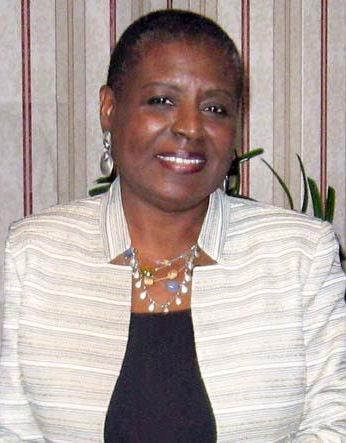
Federal meddling in state and local elections

By Dorothy Inman-Johnson
Special to the Outlook
Elections in the United States are highly decentralized with responsibility for the actual administering and conducting elections left to state and local election officials. So it is immediately suspect when the U.S. President suddenly decides every state must send all of its voter registration and residents’ voting history and data to him. Alexander Hamilton, one of our Founding Fathers and an author of the U.S. Constitution, made it clear that elections be “consigned to local administration, which, in ordinary cases may be more convenient and more satisfactory”. He reserved the right for federal intervention only in “extraordinary circumstances”. Nowhere in law or the Constitution is authority given to the U.S. President or the federal Executive Branch of government to interfere in state or local elections except to ensure that federal voting and civil rights laws are enforced.
Therefore, Trump and his federal Voter Integrity Commission, and their unfounded claims of massive voter fraud, make the demand for every American’s personal voting data and history suspicious. Concern continues to grow when introduced to most of the members of the Commission. A Salon.com article states, “Trump stacks his voter integrity Commission with the nation’s leading voter suppression architects”. Two of the most prominent voter suppression advocates on the Commission are Kris Kobach, former Kansas Secretary of State responsible for creating one of the most restrictive voter ID laws in the country, and Hans von Spakovsky, a fellow with the Heritage Foundation who led the unsuccessful effort to purge legal voters from Missouri’s voter rolls. The Commission consists of ten (10) members, with six (6) Republicans and four (4) Democrats. Kobach, also Co-Chair of the Commission and Spakovsky are among the six (6) Republicans. The other four (4) are Vice President Mike Pence, who is Chair and as Indiana Governor stopped African-American voter registration campaigns in the state; Ken Blackwell, a former Ohio Secretary of State who was the subject of 14 election-related lawsuits due to voter suppression tactics; Connie Lawson, Indiana Secretary of State who co-wrote Indiana’s strict Voter ID law; and Christy McCormick, a U.S. Elections Commissioner who gave testimony to support Kris Kobach in a voter suppression court case.
The Democrats are Matthew Dunlap, Maine Secretary of State who refused to release his state’s voting data to Trump’s Commission; David Dunn, former Arkansas Secretary of State and a fierce voting rights advocate; Bill Gardner, New Hampshire Secretary of State with no clear position on commission’s goals; and Mark Rhodes, County Clerk of Wood County West Virginia who believes in the integrity of U.S. elections and does not support claims of voter fraud. I am sure Trump felt it was necessary to appoint some Democrats to the Commission to prevent its voter suppression motives being so obvious. Unfortunately, the Democrats are too outnumbered and would be woefully incapable of preventing the harm this Commission could cause in purging voters.
It is no surprise that about 45 of the 50 states have refused to provide all or part of the data requested by Trump and the Commission. There is absolutely no evidence of the widespread voter fraud that this Commission was created to cure. Instead, all studies show there is close to zero in-person voter fraud that Trump, Kobach, and Spakovsky insist the federal committee is needed to prevent. The real reason for collecting everyone’s personal voting data and history is to create a national registry of voters, making it easy to do a national purge of voter rolls targeting minority and democratic voters before the 2018 Mid-Term Congressional and state elections to fix the votes for Republicans. If successful in 2018, they can be assured of their ability to deliver a second term for the worst President in U.S. history in 2020.
Governor Scott, unlike the majority of U.S. Governors, immediately turned over all Florida voters’ data requested by the Commission. We can only hope that lawsuits filed by some advocacy groups are successful in protecting our voting rights. Just as prisoners of war are only required to give name, rank, and serial number, our Governor was only obligated to provide basic voter registration data on Florida voters, like name, date of registration, date of birth, and party affiliation. Why in the world would Trump and his suppression commission need our voting history, ethnicity, and other personal data?
They have already diluted our voting power with restrictive voter ID laws, reduced or eliminated early voting_ making it difficult for working poor to vote, made it almost impossible to get ex-offender voting rights restored, and made the federal Voting Rights Act almost unenforceable under the Trump/ Sessions administration. Civil and voting rights advocates and legal scholars had better get ready to fight back in court.
Send comments to dotinman-johnson@hotmail.com







